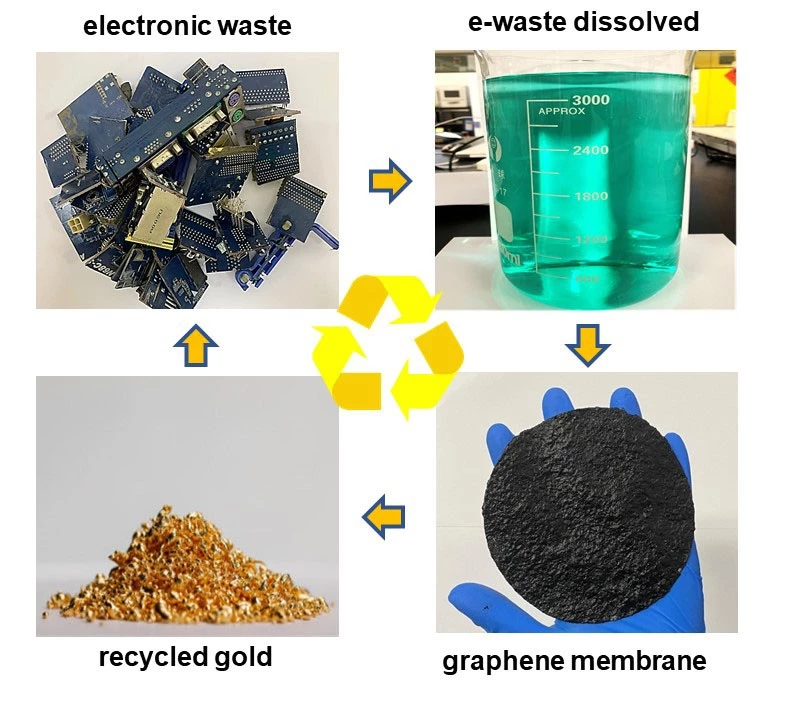Discarded electronics can be a gold mine – literally. Researchers have developed an efficient new way to use graphene to recover gold from electronic waste, without needing any other chemicals or energy.
Beyond its superficial uses in jewelry, gold is prized for use in electronic components thanks to its high electrical conductivity and ease to work with. But electronic devices have a high turnover, and recovering gold and other precious metals is a process that’s often fiddly, inefficient, and requires chemicals or high heat.
But now, researchers at the University of Manchester, Tsinghua University and the Chinese Academy of Sciences have developed a much simpler method to recover gold from electronic waste. All it takes is some graphene.
First the e-waste is ground up, then dissolved in a solution. A membrane made of reduced graphene oxide is added, and within a few minutes pure gold begins to accumulate on the membrane surface. Just 1 gram of graphene is enough to extract almost twice that amount of gold, attracting over 95% of the gold in a given sample even at concentrations as low as one part per billion. Importantly, it doesn’t attract other metals in the e-waste mixture, and afterwards the graphene membrane can be burned off, leaving behind the pure gold.

“This apparent magic is essentially a simple electrochemical process,” said Dr. Yang Su, lead author of the study. “Unique interactions between graphene and gold ions drive the process and also yield exceptional selectivity. Only gold is extracted with no other ions or salts.”
The team says the technique could help reduce the amount of gold that goes to waste, as well as cutting back on the growing environmental problem of e-waste. Other scientists have tackled the problem by using solvents made largely of vinegar or other mild acids, or designing circuit boards that fall apart when placed in hot water.
The new research was published in the journal Nature Communications. The team demonstrates the technique in the video below.
Source: University of Manchester




